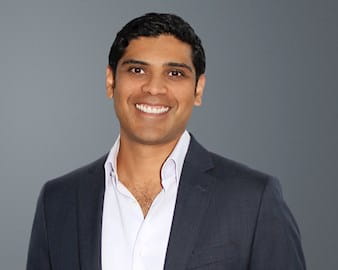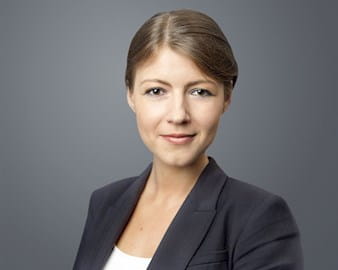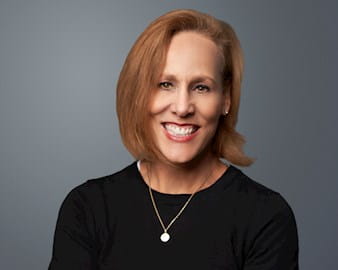
Coco Meers, ’14
CEO and Cofounder of Equilibria, Chicago
The Challenge: Despite the 2018 legalization of industrial-hemp growth and the growing market for CBD, its unregulated status means that many aspects of the traditional finance and banking services remain limited for CBD companies. As a result, Coco Meers and her direct-to-consumer CBD company Equilibria faced a tough situation when they lost their payment processing ability in 2019.
The Solution: Coco Meers cofounded Equilibria, a premium CBD subscription company for women, with Marcy Capron-Vermillion in 2018. Their goal was to leverage CBD to help women access relief from chronic pain, soreness, and everyday stresses. It was a personal quest—as a busy serial enterpreneur and working mom, Meers uses CBD to quell anxiety, and to relieve pain from her autoimmune spine condition.
Understanding how critical quality and consistency is in this nascent category, Equilibria became part owner of a bioscience lab and farm in order to control its supply chain and differentiate its farm-to-home, clinical-grade products. Its model of premium CBD routines—as well as the personalized dosage support for clients—helped to grow a dedicated customer base. In its first three months after launching, Equilibria was going strong.
But in June 2019, Equilibria lost all payment processing by the firm’s original processor following a leadership change at the FDA, which blacklisted CBD as a category. The change sent the industry into tumult and left the firm without a way to sell inventory. It risked disrupting Equilibria’s entire model.
“Women were still turning to us for consistent help with sleep, stress, and relief, but as a direct-to-consumer-only company, we could no longer process their cards and earn revenue. As a brand-new company with little to no balance sheet at the time, it could have ended us,” Meers says.
Despite not being able to process payments online, “our incredible team got scrappy!” Meers adds. Even with its short time in business, Equilibria had a strong connection with its customer base. Clients sent checks and cash to allow the firm to ship their orders. Equilibria worked every part of its network and developed a matrix of backup solutions including going offshore and building its own payment gateway using the firm’s internal engineering capabilities.
“We stayed persistent and asked unabashedly for help from every part of our community,” Meers says. Six weeks later, Equilibria joined financial services company Square’s private CBD beta and resumed generating revenue and servicing its customers. The company, which has been featured in Fortune, Woman’s Day, Forbes, and Elle, among other media channels, has sustained double-digit month-over-month growth nearly every month since its inception, and is a leader in direct-to-consumer wellness for women.
The Takeaway: Businesses will face unforeseen challenges at every level at some point. When significant challenges occur, think creatively and rely on strong customer networks and other areas of potentially untapped support.
We stayed persistent and asked unabashedly for help from every part of our community.
— Coco Meers

Shehzad Hoosein, ’07
COO of Cannabistry, Skokie, Illinois, and Santa Rosa, California
The Challenge: When Shehzad Hoosein joined Cannabistry, a scientific research and development company, from London-based premium spirits company Diageo in 2015, he focused his plans based on consumer brand playbooks and models that he was familiar with. But he and the company soon found that when an entire industry is a startup, those models won’t necessarily translate.
The Solution: When Hoosein first joined, Cannabistry planned to create best-in-class products that it could brand itself, working with partners to produce the items and then selling licensed products in dispensaries—similarly to how supply-chain models work in established industries. It built a lab and launched in Denver, bringing in chemists and food scientists to create products.
But the team ran into issues when it came to third-party distribution, as other companies failed to understand Cannabistry’s products. Hoosein and the team realized they had to shed the idea of traditional supply-chain models—it was better to control the entire system.
“We thought things should work a certain way because that’s how business works. But it just doesn’t work that way. It’s a completely different set of rules. It’s a completely different culture. It’s a completely different way of doing things,” he says.
Cannabistry had to pivot. Rather than seeking to expand their distribution footprint to several states, to save costs, the firm targeted the most lucrative region, California’s $4.4 billion market. In 2019, Cannabistry partnered exclusively with M Plant Productions, a manufacturer and marketer of cannabis-infused products, giving them access to more than 1,000 dispensaries across the state. Cannabistry now has three THC and CBD brands: The Root of It All, Mistifi, and Tough Mama.
As more people enter the field, the industry is becoming more professional, and the supply-chain woes Hoosein experienced early on are fewer. He realized it’s better to specialize in a few areas, rather than try to control everything.
The Takeaway: Figuring out your place in a new and growing industry is a challenge, and it’s important to remember the business’s core essence. While past training can give you confidence in your business plan, it’s also important to stay flexible and be humble enough to pivot when something isn’t working, as learning to adapt is critical in a business where there are few traditional benchmarks for success.
It’s a completely different set of rules. It’s a completely different culture.
— Shehzad Hoosein

Marina Chumakova, ’18
CFO of Cannabistry
The Challenge: Cannabis firms face two significant challenges when it comes to financing operations: uncertainty about future revenues and a long cash cycle. Marina Chumakova had to think about how to battle uncertainty in an industry that is extremely new.
The Solution: When a firm develops new products, it often looks at competitors to get a sense about customer adoption of certain items and to estimate future revenues and cash flow. But the cannabis industry is completely new, with some products having no equal on the market. “You can take proxies of other industries, but you can’t make 100 percent assumptions,” says Chumakova.
The industry also has a long cash cycle, so firms need to decide early on how much to invest in inventory. Farmers must be paid on product delivery, but manufacturers such as Cannabistry may not get paid by dispensaries for net 30 or 60 days. That leaves cannabis firms sometimes waiting three or four months to complete the cash cycle. Tapping loans to bridge that gap isn’t always a solution, since traditional banks often can’t legally lend to cannabis firms, and other companies that offer financial services to the industry may charge hefty fees.
To limit the uncertainty of future revenues, Chumakova relies on a mix of data and different financing models, plus negotiating skills with suppliers and customers. On the traditional side, she incorporates proxy models and talks to dispensaries to get a sense of potential product volumes, seeking out people in various roles and asking questions to get a well-rounded picture.
She also remembers to beware of informational biases that may lead to overconfidence, a potential hazard when collecting sales data. To avoid using expensive financing options, Cannabistry may leverage physical assets as needed to get liquidity. “It’s all about trying to be more flexible and more creative, and using every single opportunity to free up cash,” she says.
Strong communication skills are also vital when talking with supply-chain constituents. Cannabistry has a team member dedicated to building relationships with growers and making deals on the basis of how much raw material the firm will buy on a regular basis. With packaging producers, it may make other payment structures. These relationships are not simply contractual; in an opaque industry such as cannabis, partners can build trust by sharing information and offering flexibility and support when needed.
The Takeaway: In a new industry with unique constraints, it’s important to be creative. Use the traditional information that’s available to make plans, but don’t overlook other opportunities when financing is tight. Strong relationships can also help out when times are tough, allowing flexibility between partners to adjust when needed.
You can take proxies of other industries, but you can’t make 100 percent assumptions.
— Marina Chumakova

Deanie Elsner, ’92
President and CEO of Charlotte’s Web, Boulder, Colorado
The Challenge: Deanie Elsner came to Charlotte’s Web, a publicly traded, leading CBD company, to help professionalize the startup. While Charlotte’s Web has a clear market vision, it lacked the typical corporate infrastructure needed to expand, and Elsner as CEO buckled in to assist.
The Solution: In 2019, cannabis researchers BDSA and Arcview Market Research forecasted that the CBD market could reach $20 billion by 2024. Charlotte’s Web founders wanted their firm to hit $1 billion. With that in mind, they brought in Elsner.
After 28 years of working in the commercial packaged-foods corporate world, and 15 years of leading turnaround companies, she wanted to work in a dynamic, growing field—and now she was tasked with professionalizing a young startup in a new industry. Elsner reviewed the operational infrastructure that could eventually get the firm to its revenue goal of $1 billion.
“I prioritized by the things that will get you in trouble the fastest as a public company,” she says. She focused first on hiring new staff in finance to create more dependable, rigorous financial-reporting data. She moved to marketing and sales next, looking for the greatest and fastest way to produce revenue. Because of the lack of regulation, the industry didn’t have access to traditional advertising or distribution, and she had to find work-arounds to get auditors and lending institutions to work with the firm.
Charlotte’s Web is vertically integrated, but in order to scale its supply chain, Elsner hired a team to ensure that the quality, consistency, and safety of the product remained constant. The firm has even built a new, 137,000-square-foot research and development, manufacturing, and distribution center to scale sustainably.
As Elsner worked to build the various teams, she sought to hire people who could be flexible and dynamic, to work in an evolving regulatory environment and across departments. Her next step is figuring out how to deliver disproportionate growth in this sector in an uncertain regulatory environment.
“I’m excited about what we have and excited about what’s ahead of us, but we continue to be in a situation where we’ve got to pivot to adapt to the external environment,” Elsner says. While there is much still to be done, Charlotte’s Web is making progress.
The Takeaway: A lot can be accomplished by hiring a team that has a strong culture, trust, and transparency as well as members who can collaborate constructively to challenge each other to get to the best decision.
I’m excited about what we have and excited about what’s ahead of us, but we continue to be in a situation where we’ve got to pivot to adapt to the external environment.
— Deanie Elsner


